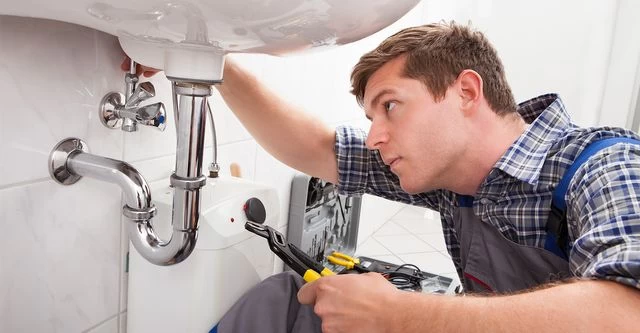Table of Contents
Plumbing silently operates in the background, delivering clean water for drinking, bathing, and cooking while efficiently managing wastewater—a vital part of our daily lives. It's often overlooked until a plumbing issue arises, and that's when plumbers step in as unsung heroes. In this in-depth article, we will explore the pivotal role plumbers play in maintaining and safeguarding plumbing systems. From their extensive training and expertise to the array of services they provide, gain a profound understanding of these professionals who ensure the seamless flow of water.
The Journey of Plumbers: Education and Expertise
Plumbers are highly skilled professionals who embark on a rigorous training journey to become experts in their field. Their path typically commences with formal education and hands-on apprenticeships. Here's an insight into the training and expertise plumbers acquire:
Education: Many plumbers kickstart their journey by enrolling in vocational or trade schools. These programs offer a strong foundation in plumbing principles, mathematics, and safety protocols. Aspiring plumbers also delve into local plumbing codes and regulations.
Apprenticeships: Hands-on experience is a cornerstone of a plumber's training. Apprenticeships, which may span several years, allow them to work under the guidance of seasoned plumbers. During this period, they acquire the skills to install, repair, and maintain plumbing systems while gaining valuable insights.
Licensing: In most regions, plumbers are mandated to obtain licenses for professional practice. Licensing entails passing examinations assessing their proficiency in plumbing codes, safety practices, and industry standards. This ensures that plumbers are competent and capable of delivering top-notch work.
Continued Education: The plumbing industry constantly evolves, with new technologies and techniques emerging regularly. To stay current and enhance their expertise, plumbers frequently engage in ongoing education and training programs. This commitment to lifelong learning equips them to address a wide array of plumbing challenges effectively.
The Multifaceted Roles of Plumbers Plumbers undertake a diverse range of crucial tasks to uphold and repair plumbing systems in residential, commercial, and industrial settings. Let's delve into some of the pivotal roles plumbers assume:
Installation of Plumbing Systems: A primary responsibility of plumbers is the installation of plumbing systems in new construction projects. This entails designing the network of pipes, installing fixtures, and ensuring compliance with local building codes. Proper installation is imperative to forestall future plumbing issues.
Repair and Maintenance: Plumbers are frequently summoned to diagnose and rectify plumbing problems. Whether it's a leaky faucet, a clogged drain, or a burst pipe, plumbers possess the expertise to identify the issue and carry out necessary repairs promptly. Routine maintenance checks can also forestall potential problems, saving homeowners money and headaches in the long run.
Emergency Services: Plumbing emergencies can strike at any hour, and plumbers are the first responders. Be it a midnight pipe burst or a blocked sewer line, plumbers are accessible round the clock to offer emergency services. Their swift response can curtail damage and restore normalcy to your home.
Upgrading and Remodeling: When homeowners opt to upgrade their kitchens or bathrooms, plumbers are indispensable collaborators in the remodeling process. They install new fixtures, reroute plumbing lines, and ensure the renovated space functions seamlessly.
Inspection and Diagnosis: Plumbers are adept at inspecting plumbing systems to unearth concealed issues. Employing specialized tools like cameras, they peer inside pipes to detect blockages or damage. Early detection enables them to avert major plumbing disasters.
Water Heater Services: Plumbers possess expertise in water heater installation, repair, and maintenance. They assist in selecting the appropriate type and size of water heater for your home, ensuring efficient operation.
The Toolbox of Plumbers
Plumbers rely on an arsenal of tools and equipment to execute their tasks effectively. These tools enable them to diagnose issues, effect repairs, and maintain plumbing systems. Here are some of the essential tools of their trade:
Pipe Wrenches: Adjustable wrenches used for gripping and turning pipes and fittings of various sizes. Plungers: Employed to clear clogs in drains and toilets by creating pressure to dislodge blockages. Pipe Cutters: Utilized to cleanly cut pipes made of diverse materials, including copper, PVC, and steel. Augers and Snakes: Tools to remove pipe blockages by breaking them apart or pulling them out. Pipe Cameras: Equipped with lights and cameras, these aid plumbers in inspecting the insides of pipes, identifying issues like blockages, cracks, or corrosion. Propane Torches: Used for soldering pipes and fittings, creating secure connections. Leak Detection Equipment: This includes acoustic and infrared devices that assist plumbers in pinpointing the location of pipe leaks. The Significance of Plumbing Codes and Regulations Plumbing work must align with local plumbing codes and regulations, ensuring the safety and functionality of plumbing systems. Plumbers are well-versed in these codes and play a pivotal role in ensuring compliance. They verify that installations meet code requirements, acquire necessary permits, and conduct inspections as mandated by local authorities. This guarantees that your plumbing system not only functions optimally but also adheres to legal standards.
In Conclusion
Plumbers stand as the sentinels of our plumbing systems, diligently ensuring that water flows as it should and our homes and businesses remain safe from plumbing catastrophes. Their training, expertise, and commitment to lifelong learning make them indispensable professionals in our lives. The next time you turn on a faucet, flush a toilet, or luxuriate in a hot shower, pause for a moment to acknowledge the plumbers who make it all possible. They are the unsung heroes who keep our water flowing seamlessly.



.webp)





.webp)






 +91
+91